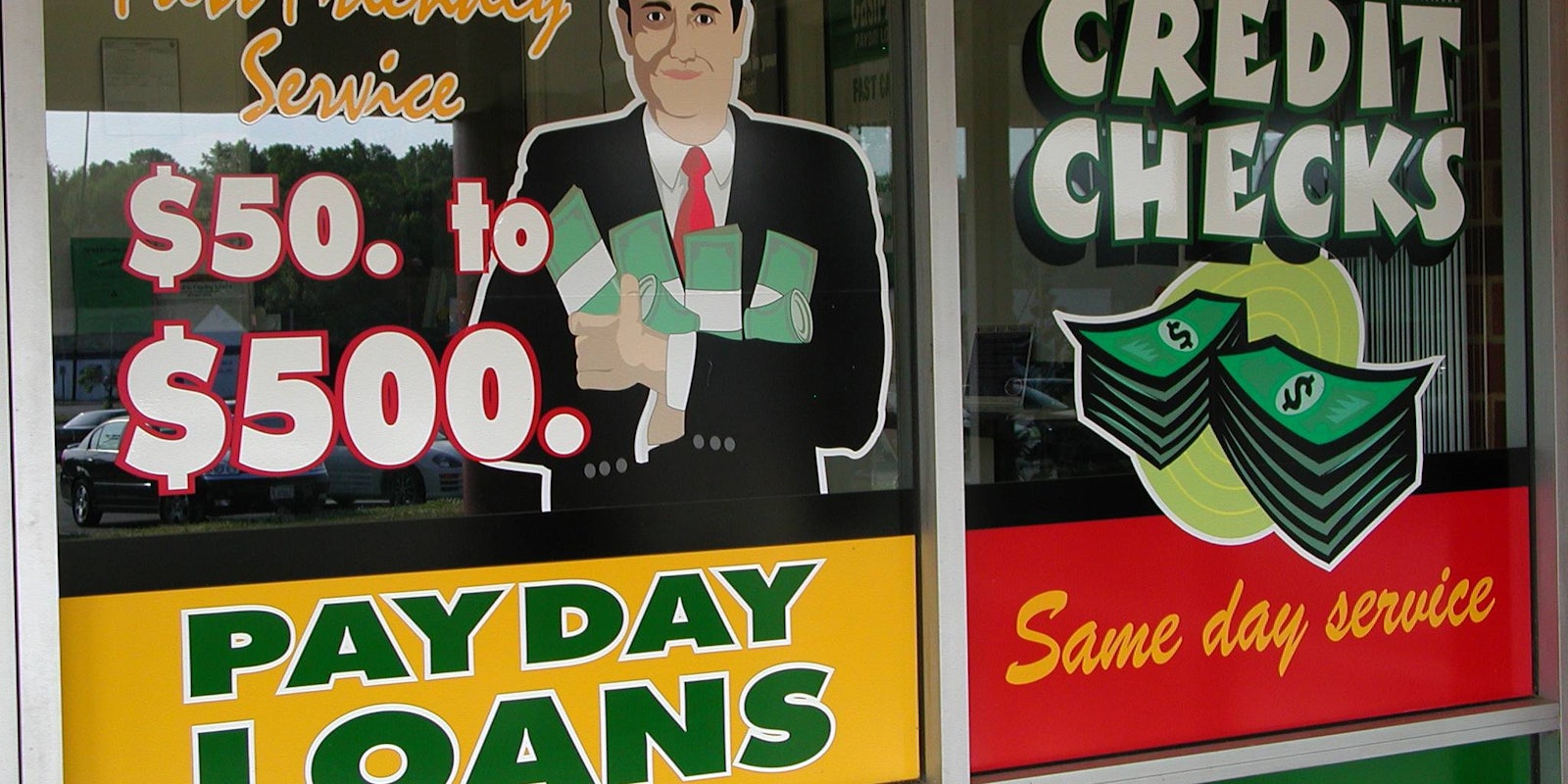Online advertising’s best strength its ability to target specific groups of people, but Google has decided that one group of businesses can’t use its targeted ad system. The search giant on Wednesday announced that it would stop letting payday lenders use its AdWords platform.
“When reviewing our policies, research has shown that these loans can result in unaffordable payment and high default rates for users so we will be updating our policies globally to reflect that,” David Graff, Google’s global product policy director, wrote on the company’s blog.
Beginning July 13, no company offering loans requiring repayment within 60 days of the date of issue will be allowed to advertise those loans through the world’s most popular ad platform. Google will also block U.S. ads for loans with an annual percentage rate of 36 percent or higher.
Wade Henderson, president and CEO of the Leadership Conference on Civil and Human Rights, praised Google for its decision in a statement included in the company’s post.
“This new policy addresses many of the longstanding concerns shared by the entire civil rights community about predatory payday lending,” he said. “These companies have long used slick advertising and aggressive marketing to trap consumers into outrageously high interest loans – often those least able to afford it.”
Liz Ryan Murray, the policy director for the People’s Action Institute, told the Daily Dot that her organization was “thrilled to see Google take common sense action to help stop high cost predatory lenders from ripping off families across the country.”
Murray said that the institute still awaited awaiting new rulemaking from the Consumer Financial Protection Bureau designed to crack down on predatory lenders, but in the meantime, “we hope more businesses will choose the high road and cut ties with the industry.”
Payday loans aren’t the first product to be barred from AdWords. Google also blocked ads for illegal drugs, counterfeit products, misleading weight loss supplements, and hate speech. The company says it pulled more than 780 million offending ads in 2015.
As extensive research has shown, payday loans are incredibly damaging to vulnerable populations that rely on them.
The Center for Responsible Lending, which praised Google’s decision, reports that the average payday loan carries a 391-percent APR. The organization also says that lenders often intentionally place storefronts in low-income neighborhoods to strategically target people who are least likely to be able to reject their term. This practice has been replicated online through targeted advertising, according to civil rights consulting firm Upturn.
A survey by the Pew Charitable Trusts found that 5.5 percent of Americans use payday loans each year and that the average borrower will take out eight $375 loans per year while spending $520 on interest.
The Consumer Financial Protection Bureau backed that finding when it reported that four out of five payday loans are rolled over or renewed within 14 days and that the majority of those renewals lead to the borrower paying more in fees than the amount of money they originally borrowed.
Online lenders have proven to be exceptionally malicious in their practices. According to a recent CFPB study, half of online borrowers are charged an average of $185 in overdraft fees, and one-third of borrowers who are hit with a bank penalty have their accounts closed involuntarily.
The Internet has been a tremendous boon to predatory lenders, whose revenues have doubled since 2006 thanks in large part to their ability to advertise online and offer services across state lines, thus avoiding many state regulations.
Many of the companies in the lending business blasted Google for its move.
Manjush Varghese, the ?vice president and general manager of ecommerce at Ace Cash Express, commented on Google’s post that he was “extremely disappointed” in the company’s decision.
“I would love to know some of the facts and research you are referring to,” he wrote. “I have been a long-standing, responsible advertiser on Google. Our prior attempts to engage with the policy group at G[oogle] have been consistently rebuffed. I sincerely wish you had the inclusiveness to engage all parties in these policy discussions.”
Varghese suggested that Google’s data was “biased” and added that he would be “happy to share data with you that shows your decision will only end up harming consumers in the long run.”
Varghese did not respond to the Daily Dot’s request for comment.
H/T The Verge


